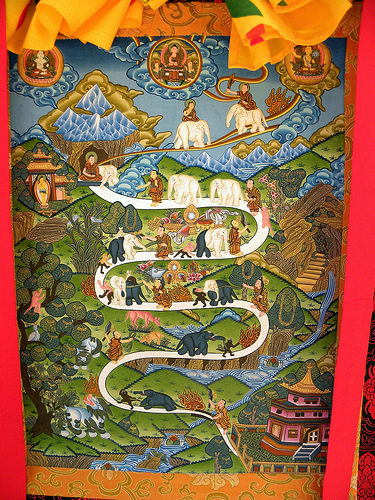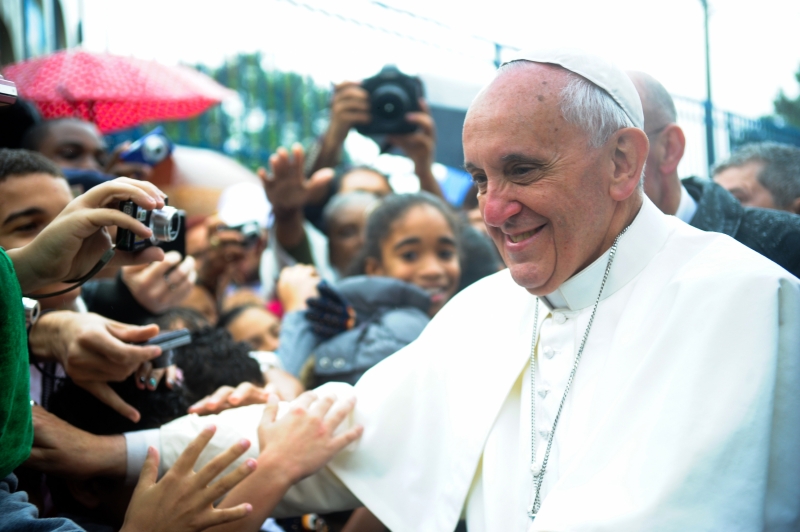The way is not in the sky. The way is in the heart.
— Gautama Buddha

All roads lead to the same place…
Might an artificial intelligence also look for God? What might it mean if it does? Does one have to be a “good monk” to be an effective one? What is the role of faith in restitution and atonement? What is the role of religion in society — to detach from the world, or to involve oneself in it?
If you’ve been following Sacred Earthlings for any length of time, you know that these kind of delicious questions make our world go ’round, and when they’re packaged in a short story with gorgeous, clear language, all the better. We’d like to thank author Jei D. Marcade for writing her excellent “Sounding The Fall,” episode 499 at Escape Pod, published on July 20th, 2015. The story takes place in a future society overcome with technology and noise, sealed against a toxic world and ruled by tower-bound artificial intelligences. Into this environment comes Narae, a monk in an appearingly-Buddhist monastery, who has sealed erself out of society after an AI experience some would consider to be a truly religious one, and others might… well, I’ll just let you read the story, because I don’t want to spoil a story so well-constructed.
You didn’t read that pronoun wrong — Marcade eirself uses a gender-neutral pronoun in real life, as does this story’s main character. It forces the listener to view Narae’s actions not through the lens of gender, but through the lens of a greater humanity, with no recourse to explain her doings as “female” or “male” reactions. The choice to become gender-neutral is a very interesting choice for someone so devoted to higher truths; one may say that, when searching for God, something like gender does not even matter. The fact that Narae is painted as a truly human character, with the kind of human failings we could expect from someone struggling to understand a profound and life-changing experience, is even better. This is a very personal story, one that touches on beautifully epic thoughts while keeping the focus on characters you come to care about.
Hear “Sounding The Fall” at Escape Pod now.
—
photo credit: Fo Guang Shan Buddha Memorial, Taiwan via photopin (license)
photo credit: Gaden Shartse Tibetan Monks via photopin (license)
Please support Sacred Earthlings by buying from Amazon at this link:








